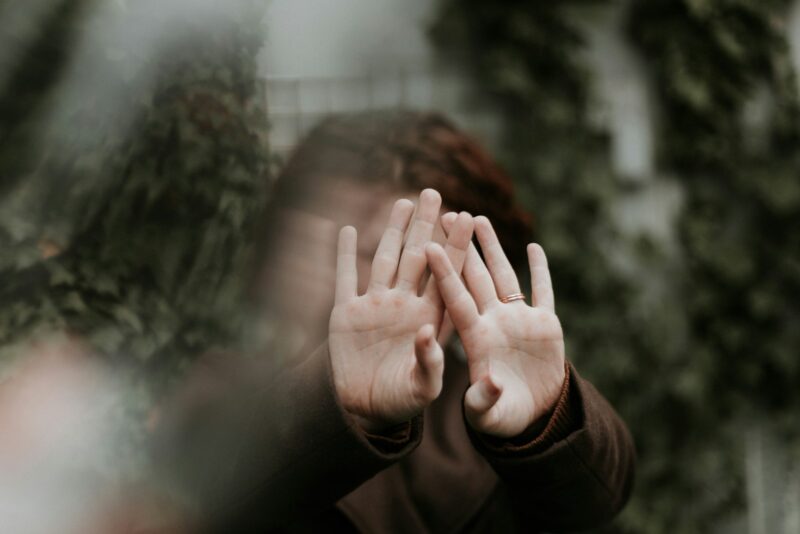In his follow-up article on the wonder of leadership, Colin Reeve looks at how we can break habits to embrace new ideas.
We have become lazy. We are living in the most unpredictable time in our history and we need all the resources available to us to stay with it and be successful. One of our greatest resources is our ability to think and to imagine what is possible - without this there is no new action and we spiral down into our old, comfortable and often out-dated ways of thinking and being.
We have become lazy thinkers. We read newspapers with big headlines and small stories and we listen to speeches and wait for the presenter to tell us what was said. We decide who and what to believe and we stick with them because it’s easier than thinking. We throw food away not because it’s inedible but because it says so on the packet. We respond to the same old clichés because it’s easier than thinking. We need to wake up and wake up quickly.
Getting below the habit of headlines
We are human - we develop habits: physical habits, emotional habits and thinking habits. Unfortunately we go on to embody those habits and we begin to think we are them, "That’s just me, that’s how I am. We’ve always done it like that." We embody them to such a deep level, we don’t see the possibility of being different and our minds become increasingly static and closed to new ideas at a time when new ideas and innovation are critical for our success.
 "Great organisations and industries have been lost to out-dated thinking habits; thinking in headlines and talking in headlines has undermined their performance and slowed their progress."
"Great organisations and industries have been lost to out-dated thinking habits; thinking in headlines and talking in headlines has undermined their performance and slowed their progress."Headline: "I can’t do that" is a thinking habit which offers no possibility of success.
Getting the story beneath the headline: "I can’t do that . . . but I have learned things before, and this would be challenging, but good for me and the business, so I could give it a try."
This is a story uncovered through skilled conversation that leads to possibility and potential being explored and released.
We become lazy - we respond to our habits automatically, without thinking whether or not they are appropriate. Leaders awaken people to their habits; help them explore the possibility beneath the headlines they have written for themselves or their organisation. Encouraging them to let go of the hand-rail of habits they cling to, frees them to think for themselves and by doing so, act differently.
By accepting our habits as "us", we settle for being less than we could be. Our organisations settle for less than they could be by accepting the cultural habits which were formed and embodied during different times. Great organisations and industries have been lost to out-dated thinking habits; thinking in headlines and talking in headlines has undermined their performance and slowed their progress.
Muscles remember and muscles forget
The wonder of leadership comes to those who are prepared to have conversations with the people around them, not to "do stuff" to them. Not meetings with a hidden outcome (sometimes disguised as coaching, appraising or counselling), but genuine, authentic conversations between adults whose personal wealth and wellbeing depend on their own success and the success of their organisation.
These leadership conversations can help us to explore below the negative headline to uncover a positive story and to develop new, more appropriate habits or to rediscover and awaken others we have forgotten about. Doing so allows us to realise more of our potential and become more effective and elegant in the way we live our lives.
Leadership is found in the doing not the done
How many organisations have a vision, mission and set of values written and on display in reception, on place mats, on screen savers and, having done that, sit back smugly and wait for the magic to happen. These are indeed powerful things, but their power comes from the doing of them not the done.
To evoke the wonder of leadership we need to focus on how we do things not just on realising outcomes. By paying attention to the habitual how we do things around here, we can uncover and transform that which is no longer helpful.
My experience in helping develop cultures which have become stuck to move toward a more elegant, more appropriate culture is that, within the space of around 12 leadership conversations, the culture moves and gets its own momentum. These are skilled conversations held with mutual respect and without an immediate outcome. They are a means to re-route tired thinking and create new adventures, new pathways of possibility. Leaders help people change and people go onto change organisations.
Challenge, discomfort, nervousness - these are not signs of stress. They are your body’s way of telling you that it’s time to change. Struggling to hold onto old ideas when their time has passed is where the stress comes from.
The wonder of leadership conversations are designed to transform old thinking into possibility thinking. To bring awareness to how we have learnt to think and how that thinking has become a habit. It is not "you" - you are the person thinking those thoughts and you can decide to develop an up to date, more appropriate box of habits. This is the way and the wonder of Leadership
Try this simple exercise
Stand up from your seat, sit down and stand up again. Now from the sitting position, hold your back and your head straight. This time stand up while holding that posture and without bending your trunk forward. Describe what has to happen which is different to the first time you stood up.
Most people will describe how they had to pay conscious attention, had to concentrate and had to change their start position in some way in order to stand up while holding the posture.
You have been practising standing up for all but the first year of your life and you probably have made no conscious effort to look at it and ask whether there is a different way to do it . . . it’s a physical habit. And it will take conscious attention to change it. However, if you maintain your conscious attention for a short period of time, you will develop a new more appropriate habit.
This updating, like a technical upgrade, is available to us with our thinking and feeling habits as well as our physical ones. What old habits does your upgrade need to address?
- Read part one: The wonder of leadership.
Colin founded Leadership Consultancy RA based in South East and working throughout the UK/Europe/North America. Specialists in engaging powerful thinking, appropriate emotions and the body in making learning and leadership stick and developing healthy high performing cultures that release talent, potential and energy into the business.









